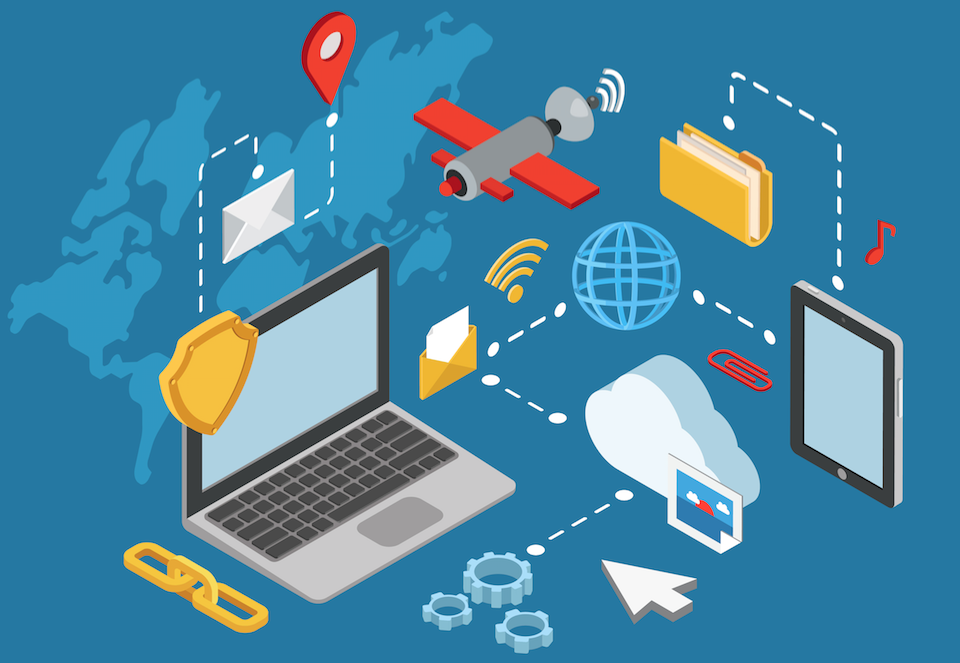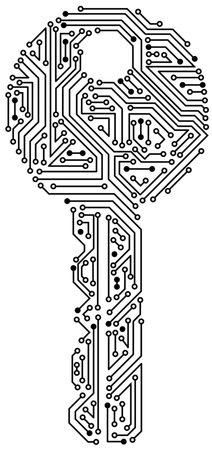
A VPN stands for Virtual Private Network. It is a method used by computer users all over the world to secure and protect their privacy while using the internet. In the past, it has usually been corporations that used VPNs, but private citizens are using them more and more often lately for the very same reasons of safety and privacy that companies have enjoyed for years.
What is a VPN?
The basic answer when some asks ‘what is a VPN,’ and how does it keeps you safe, is that it protects your anonymity by masking your IP Address. The VPN provider gives the user a new IP address that makes it look like they are in a completely different part of the world. As an example, you could live in New York, but have an address for Los Angeles or anywhere else that the VPN provider has gateways.
The second aspect of what a VPN is, is that it will protect your information by sending it in encrypted packets. Anyone attempting to intercept those packets of information will not be able to decipher them and steal your information.
Why do people use a VPN?
Corporations have used VPNs for years to keep their information and trade secrets private. As data becomes easier and easier to intercept, through WiFi spoofing and Firesheep, it is easier all the time to hack information – unless you protect yourself.
Most computer users wouldn’t dare connect to the internet without a good firewall and with the latest antivirus. More people are becoming aware of how a VPN protects their information – it’s almost to the point where they’re as common as antivirus software. It does this by encrypting all of the information that you send and receive from your computer. Your information can not be stolen as the encryption makes it illegible. Anyone who does intercept your data will see nothing but gibberish!
Why should you use a VPN?
There are 3 types of people who benefit differently from VPNs:
-
The student and employee – These people are likely using a VPN and don’t even know it as their school or workplace have one set up for them already. Sometimes, these are also people whose work or school is blocking them from viewing sites. But there’s a way around this.
-
The downloader – It doesn’t matter if it’s legal or illegal, hiding download activity keeps you from being on a witch hunt list by already rich and powerful companies. If you’re using a BitTorrent site, a VPN could be the difference between enjoying content and defending yourself in court – regardless of whether or not you’re downloading legit content. You also need ot be sure that you choose a VPN which allows p2p traffic, like the 5 we recommend here.
-
The security advocate – These people know the risks all too well and are ready to protect themselves. They may be paranoid, but I’ll tell you what they aren’t – being spied on.
Using a VPN will help you fit into a newly emerging group – the security minded.
What is a VPN good for, and what will a great one do for you?
The best VPN providers that we review will provide you with the right features for your needs. Determine if you want a VPN that will be used occasionally, one that will get you around geo-restrictions, or a VPN that will help you when you’re doing heavy downloading.
 Here are the common things to look for:
Here are the common things to look for:
-
Protocol being used – SSL encryption protocols are the most commonly used today. This may not be a big deal to a common user, and if I’m speaking French (and you don’t speak French), it probably doesn’t matter to you. You can learn more about VPN encryption protocols in this post of mine comparing the different types.
-
Server locations – getting around geo-restrictions is a key feature of a VPN. For example, many online websites and apps are blocked once you leave the USA. Why have the Netflix account that you pay for blocked because you’re on a vacation? A VPN can get you around this – but only if they have servers in many different countries.
-
Logging – Your data is absolutely secure from common hackers, but the operator of the VPM can still log your data. Go with a trusted VPN provider that is well known and well spoken of by those in the industry.
-
Spyware features – A great VPN provider will protect you against malware and spyware, adding another level of protection to your online experience. It may not be a big deal considering all of your other security features, but it certainly can’t hurt.
-
Mobile options – Why pay for a service that doesn’t cover all of your devices? Tablets, laptops and mobile phones can all benefit from your VPN, make sure that your provider accounts for this.
Taking the time to consider what you need, what is on offer and how those needs can meet up, is your key to making sure you get the VPN that you want and all of the protection that you need.
Feature image via Sentavio Shutterstock
